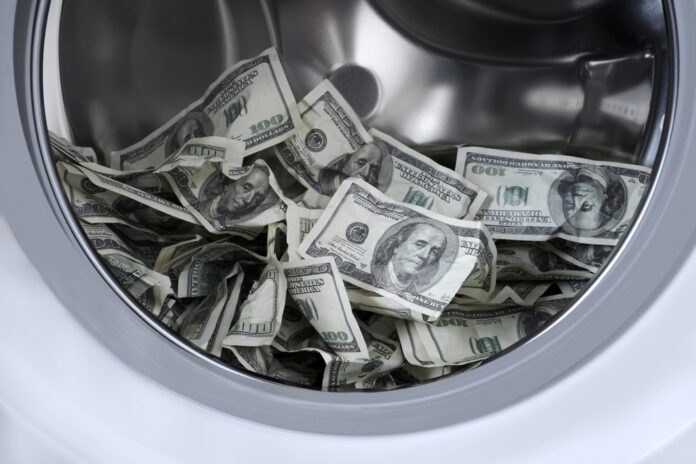Donald Trump’s decisive win on November 5 bought freedom loving Americans some time and the opportunity to change the destructive course that was chartered by extreme liberal ideology. Voter disgust with the corruption in our political system played a big role in Trump’s victory. Under his leadership, meaningful reconstruction and reform of government are about to begin.
The huge sense of relief many are feeling over Trump’s win carries significant risk if we allow it to lull us back into complacency. We cannot afford to become passive observers of the political process. Wisconsin’s elections remain unverifiable. For well over a year, state legislators and the Wisconsin Elections Commission (WEC) have turned a deaf ear to relentless voter demands that more than 4 million ineligible voter names be removed from the Wisconsin Registered Voter Lists. They provide a huge reservoir for sophisticated hackers to generate fraudulent ballots. Those responsible for election integrity have done nothing to prevent the 250,000 driver’s licenses that have been issued to non-citizens, who are here legally, from being used to vote illegally; close the gaps that allow anyone to vote by declaring themselves homeless; or tighten the criteria for “indefinitely confined”. In a state with typically slim election margins, it doesn’t take a lot of cheating to flip an election and we are living in a world where cheating to win is commonplace.
We were fortunate that massive voter turnout in support of Donald Trump made the November presidential election too big to rig. The inconceivable loss of Eric Hovde in the Senate race to Tammy Baldwin was impossible to scrutinize due to the unverifiability of our elections. It is more important than ever that we get right back to the work of demanding the vulnerabilities in our election system are addressed by legislators and the WEC. Many Wisconsin voters have new state Senators and Assembly representatives due to the redistricting that took effect with the November general election. Purging the 4 million ineligible voter names on the Registered Voter Lists remains the highest priority to secure our elections from cheating. Resuming the relentless high-pressure campaign on all state legislators is a good place for every voter to pick up the fight.
On April 1, 2025, Wisconsin will conduct a very consequential Supreme Court election. Wisconsin’s Supreme Court flipped from a conservative majority to a 4-3 liberal majority at the last election and the April 1 election will be the last opportunity to flip back until 2028. In the interim, the justices whose terms will expire will all be conservative. Since the liberals became the majority, they have shown themselves to be judicial activists. There have been a number of 4-3 decisions including declaring absentee ballot drop boxes legal and Wisconsin’s voting districts unconstitutional. Liberal Justice Ann Walsh Bradley is retiring and at this time, the only declared liberal candidate is Dane County Circuit Court Judge Susan Crawford. Brad Schimel, Waukesha County Circuit Court Judge and former Wisconsin Attorney General, is the only declared conservative candidate. If multiple candidates declare, the primary will take place on February 18. The State Superintendent of Schools will also be on the ballot. The stakes are very high.
Last week, Wisconsin became a key player in another threat to election integrity being pursued by the Congressional Committee on House Administration, which is chaired by Wisconsin Congressman Bryan Steil. ActBlue is a major Democratic fundraising platform that is used to collect small donations and channel them to liberal candidates and liberal causes. According to Open Secrets, a government transparency group tracking money in politics, ActBlue collected and distributed more than $3 billion in the 2024 election cycle. A year ago, Steil’s committee began investigating ActBlue due to allegations that the organization was engaged in a “money laundering” scheme that took in large checks from bad actors and broke them up into smaller donations using the stolen identities of unsuspecting people in a process called “smurfing.” Steil subpoenaed ActBlue for documents on its donor verification policies and the potential for foreign actors to use the platform to launder illicit money into US political campaigns. The data and evidence Steil’s committee amassed on inadequate procedures resulted in him sending letters to Attorneys General in 19 states, significantly expanding the probe into ActBlue’s practices.

Coincident to the work of the Congressional Committee, Mark Block, a Wisconsin resident, started receiving multiple receipts from ActBlue for donations he had made to liberal causes and candidates, including Kamala Harris. Block is a Republican and had not authorized any of these donations. He noted that the donations were being made on an old email account he once had and the donations were being made on an American Express Card out of California.
Unable to determine how these donations were being made on his email account, Block filed a lawsuit in Waukesha County Court alleging he was the victim of identity theft in a conspiracy to abuse the fundraising platform. In his lawsuit Block identifies 385 donations fraudulently made on his account to liberal causes. In a recent interview, Block said the number was now over 500.
Block’s lawsuit came before Waukesha County Circuit Court Judge Brad Schimel who ordered ActBlue to hand over the documents Block needed to allow him to determine how the donations using Block’s email were being paid. Act Blue was resisting on the basis that the request was too onerous for the organization. Schimel was unpersuaded and ruled the evidence presented was more than enough to be suspicious. He then asked a very common-sense question: Why wouldn’t ActBlue want to get to the bottom of the recurring donations from unsuspecting donors?
Schimel’s ruling is a huge win, essential to getting to the truth, and it is a safe bet that a liberal judge would not have ruled against ActBlue in favor of Mark Block. It should not escape anyone’s notice that the conservative judge in this case is Brad Schimel, candidate in the April 1 Supreme Court election. No one should need more convincing that the fight for election integrity in Wisconsin must continue with urgency. A favorite expression of many politicos is “elections have consequences.” The consequence of unverifiable elections is the undermining of the will of the American people.


